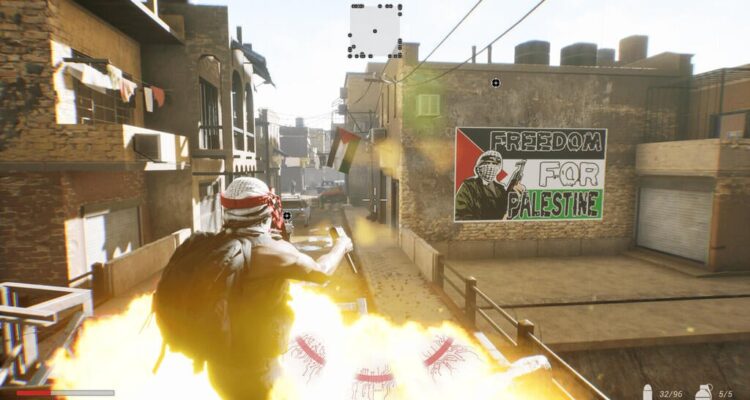The game features graphically violent actions against IDF soldiers, such as suicide bombings, stabbings, and beheadings as well as attacking IDF military bases.
By Vered Weiss, World Israel News
An updated version of a video game, Fursan al-Aqsa: The Knights of the Al-Aqsa Mosque is available on Steam and allows players to re-enact October 7th atrocities from the point of view of a Hamas terrorist.
Players also have the option to play the role of a fighter in the Lion’s Den terror group in Jenin, which the IDF recently fought against.
Although the game doesn’t feature atrocities against civilians, it does include graphically violent actions against IDF soldiers, such as suicide bombings, stabbings, and beheadings as well as attacking IDF military bases.
The developer, Nidal Nijm, a Palestinian and a devout Muslim was criticized not for the violence of the game but for including music that wasn’t considered in keeping with his Islamic observance and was labeled as “haram.”
The game contains a warning from the Brazilian authorities and was created using Unreal Engine, developed by Epic Games.
Although Unreal Engine is available to anyone, the existence of this game raises questions about what kind of restrictions Epic Games should impose on game creation.
Fursan al-Aqsa: The Knights of the Al-Aqsa Mosque doesn’t disguise its ideological purpose and the release of the new version of the game is accompanied by the statement that its purpose is to raise awareness about the war in Gaza from the Palestinian point of view.
Despite the hype and marketing surrounding the release, the game isn’t gaining popularity, mainly due to its focus on ideology rather than its gaming values.
Not only are video games such as this used to recruit would-be terrorists, some convicted terrorists want the right to play violent video games in prison.
In August, A Palestinian terrorist convicted of kidnapping and killing an Israeli teenager petitioned a judge after the Israel Prison Service (IPS) denied him the “right” to play video games.
Iham Kamamji, a Palestinian Islamic Jihad member serving two life sentences for his role in the 2006 kidnapping and murder of 18-year-old Eliyahu Asheri, said the prison administration had previously allowed him to have a Sony PlayStation 2 in his cell.





